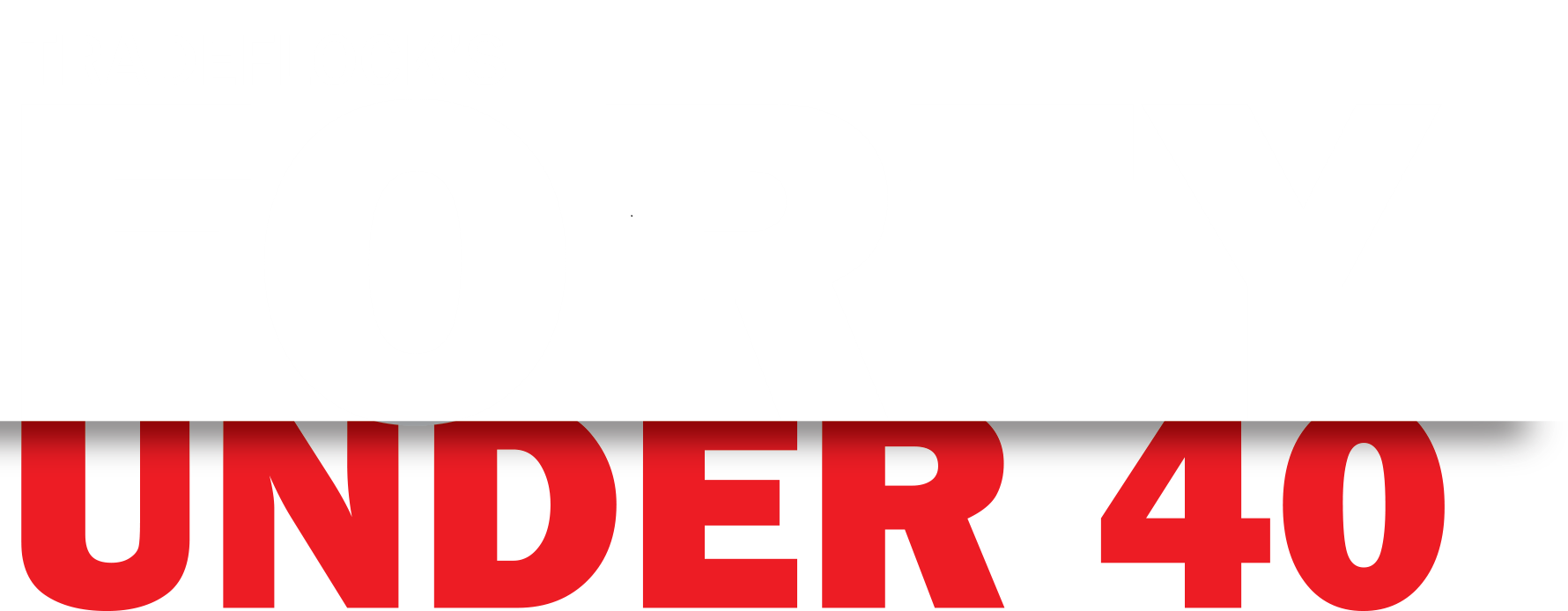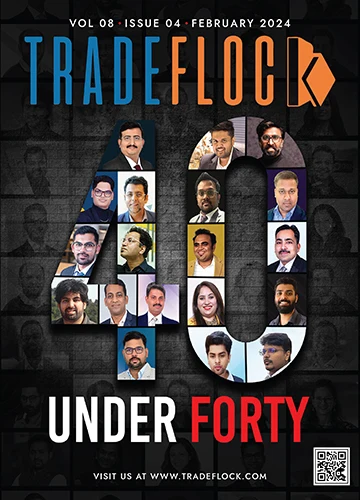
Mastering Disruption in Investments and Cultivating Visionary Leadership
Vinay Rangani
Chief Investment Officer,
Graviss Group
I n an essentially zero-sum game where every move can determine success or failure, Vinay Rangani, serving as the Chief Investment Officer at Graviss Group, brings a distinct approach to the investment arena. His leadership style reflects a departure from traditional paradigms, emphasising the need for a nuanced understanding of the investment landscape. Beginning his career in finance at Prabhudas Lilladher as a generalist in investment banking, Vinay gained foundational expertise in corporate advisory and fund raising. Subsequent roles at Cube Capital Consultancy and Colliers International further shaped his skills in investment management, particularly in private equity and real estate.
His tenure at K Raheja Corp., a significant real estate conglomerate, showcased Vinay’s proficiency in navigating diverse sectors. As the strategy lead for real estate and family office investments, he developed strategies spanning commercial real estate and hospitality. His career milestones led him to his current role of overseeing Graviss Group’s investment portfolio. The eight-decade old group is well known for renowned consumer facing brands such as Baskin Robbins, The Brooklyn Creamery, Kwality (Middle East) and Inter Continental at Marine Drive, Mumbai. This role highlighted his adeptness in managing varied sectors within a global conglomerate. Outside his corporate finance engagements, Vinay also took initiative to pursue intrapreneurship and, as Cofounder, spear-headed finance and commercial strategy at Plantaway Foods, a part of Graviss Good Foods, driven by a commitment to offer sustainable, cruelty free and healthier plant based lifestyle choices for consumers in the food and beverage sector. He is also an active angel investor in some leading and dynamic start-ups in the food and fintech space and contributes from a strategic perspective.
TradeFlock interviewed this visionary finance leader to learn more about his continual pursuit of excellence and his penchant for reshaping perspectives in the dynamic investment landscape.
Reflecting on your journey so far, what pivotal moment or decision significantly shaped your career trajectory as a CIO?
Earning the CFA charter from the renowned CFA Institute, USA, marked a pivotal moment in my journey to Chief Investment Officer. While my dedication to investing remained steadfast, earlier roles leaned towards transactional activities. This accreditation validated my commitment, significantly broadening my professional horizons and propeling me to achieving a CIO position before turning 40, which stands as a proud milestone for me personally. Engaging in continuous learning and collaboration with family office leaders brings daily fulfilment. This achievement ignited a transition from transactional responsibilities to strategic leadership, aligning with my long-term aspirations. Driven by a passion for growth, I embrace each day’s challenges, anticipating the triumphs in the dynamic investment landscape ahead.
How did you tackle challenges while constructing the aluminium plant?
Navigating the challenges during the construction of the aluminium plant was a defining phase in my career. The project’s ambitious nature, coupled with limited expertise in Indian aluminium production, posed significant hurdles. However, our team’s collective expertise and commitment to continuous learning proved invaluable. Intensive research, global plant visits, and an adaptable mindset were crucial in overcoming uncertainties. This journey highlighted the importance of teamwork, strategic planning, and unwavering determination in overcoming unprecedented challenges, culminating in the successful construction of the plant.
In what ways has your leadership style evolved over the years, and what key lessons have you learned along the way?
Over the years, my leadership style has evolved towards a participative approach. Initially, my focus was on setting clear priorities, paths, and rewards, allowing individuals autonomy as long as they met the end objectives, rather than micromanaging. This method greatly suits self-driven individuals. However, I’ve learned the importance of adapting to diverse needs— some thrive with more structure and guidance, especially in scenarios with cross-dependencies. I’ve emphasised appreciation, not solely monetary but also through active communication. Recently, I’ve prioritised public acknowledgment of achievements while providing constructive criticism in private. This evolution reflects a balance between autonomy and support, catering to varying work styles for a more cohesive and effective team dynamic.
In your opinion, what is the most disruptive force affecting investment landscapes today, and how do you harness it for success?
Undoubtedly, AI and ML stand as the most disruptive forces reshaping investment landscapes today. Fuelled by an influx of liquidity from global central banks, their rapid evolution exacerbates market fluctuations. Their prowess lies in managing vast data sets and tackling mundane tasks like data aggregation and performance analysis. AI/ML’s strength lies in circumventing human biases, systematically executing positions based on structured instructions and information flows and avoiding the pitfalls of human emotions and biases. Harnessing their capabilities allows for more logical and structured decision-making, offering a competitive edge amidst evolving market dynamics.
Who or what has been the most significant influence on your career and leadership philosophy, and how has it shaped your approach as a leader?
The most significant influence on my career and leadership philosophy stems from the insights of Charlie Munger and Warren Buffett. Their wisdom transcends the investment realm, offering practical and logical guidance applicable across diverse life facets. Warren Buffett’s quote, “Be in the field and with the kind of people you would select if you had no need for money,” has been a guiding principle. While economic constraints may hinder this freedom, I’ve been fortunate to align with this principle for much of my journey. Another impactful lesson stems from Charlie Munger’s orangutan effect—simplifying rather than complicating. It’s about distilling complexities into explanations understandable to a 10-year-old, or, as Munger says, an orangutan. This philosophy steers me towards clarity, favouring simplicity over unnecessary convolution in addressing life, business, or problems. Their teachings advocate for clear thinking, influencing my approach to leadership and decision-making beyond the confines of the investment realm.
Outside of your professional pursuits, what hobbies or activities do you engage in that contribute to your personal growth or mindset as a leader?
Beyond my professional endeavours, I find personal growth through diverse hobbies. Fiction has been a lifelong passion; delving into imaginary worlds offers unique learning and experiences akin to travelling without physically moving. It broadens perspectives and fuels creativity. Engaging in tennis and chess aligns with my inclination towards actively controlling outcomes. These strategic games mirror my personality traits, fostering a mindset of foresight, strategy, and calculated decision-making. These hobbies offer mental stimulation, honing skills essential in both personal and professional spheres, and contributes to a well-rounded approach to leadership and personal development.
Featured Magazine -
All Magazines -
Other Interviews-
- Abhishek Leela Pandey
- Abinash Sahu
- Dr. Amit Dang
- Aravind Raghunathan
- Divanshu Kapoor
- Harshit Gupta
- Kartik Amin
- Kshitij Tayade
- Meena Punjwani
- Prasun Kumar
- Rajashakher Intha
- Sachin Rajeev
- Sandeep Singla
- Dr. Sanjaya Sarathy
- Sarath Madala
- Senthil Kumar Iyyappan
- Sohit Gupta
- Sunil Paila
- Vinay Rangani
- Yash Suryawanshi











